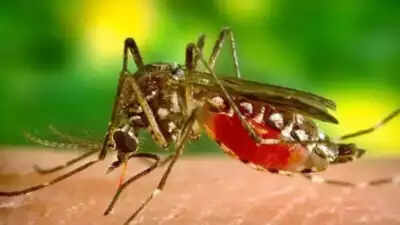- Diagnostics
- 2 min read
Chandigarh: Covert viruses with 40 dengue, 2 malaria cases
The doctors recommend staying alert for dengue fever, malaria and scrub typhus.
Not all the patients reporting at the hospitals with persistent fever are positive for Covid-19. UT health department assistant director for malaria Dr US Gill said: “During the onset of winter and when there is rise in humidity, vector borne and viral diseases intensify. But this year, viruses are active irrespective of the seasonal variations and some of those are also not being detected.”
The local dispensaries and private clinics are getting many cases of persistent fever, sore throat, and fatigue. A medical specialist from the Post Graduate Institute of Medical Education and Research said that: “Only a few of these patients are Covid positive, while the rest have flu where the fever remains for more than a week. We advise them only paracetamol, unless there is some infection and a course of antibiotics is required.”
Experts advise that the upper respiratory infection should not be managed with antibiotics unless there is some chronic infection. Most often, the virus spreads from person to person in respiratory droplets while sneezing or coughing. The transmission of viruses can also occur due to poor hand wash techniques.
The doctors also recommend staying alert for dengue fever, malaria. and scrub typhus. Panchkula physician Dr Pankaj Goel said that: “Senior citizens should take extra care, as several respiratory viruses are active. Those susceptible to these infections should get pneumococcal and flu vaccines.”
April- May or the end of October are considered appropriate time for preventive vaccination. Since the virus strain mutates every year, the vaccine protection last only a year. UT director of health Dr Suman Singh said that: “Presently, no case of H1N1 (bird flu) is reported in the city.”
The health department has issued an advisory. Symptoms for H1N1 are cough, sore throat, runny or stuffy nose, difficulty in breathing, body aches, headache, chills, diarrhea, vomiting, blood in sputum, and fatigue.
If you think you have influenza, report to the nearest health facility if there is high fever or difficulty in breathing, of if the skin or the lips are turning blue, there’s blood in the sputum, or behavior is altered.
Children may be irritable, refusing to take fluid or feed. Stay at home, if advised. Do not travel or go to work or school, and reduce exposure within household.
Avoid close contact with others for at least seven days after the symptoms began, until you are symptom free for 24 hours, whichever is longer.


Comments
All Comments
By commenting, you agree to the Prohibited Content Policy
PostBy commenting, you agree to the Prohibited Content Policy
PostFind this Comment Offensive?
Choose your reason below and click on the submit button. This will alert our moderators to take actions